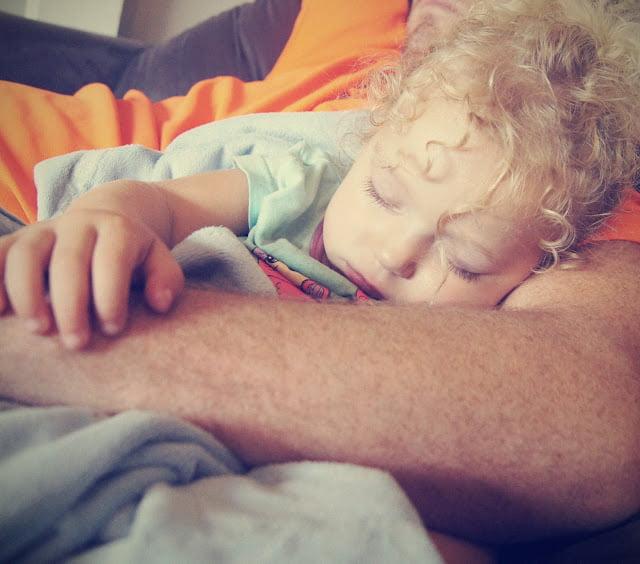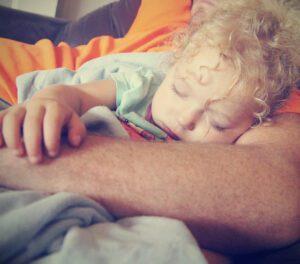Importance of healthy sleep habits for babies and parents, common sleep challenges faced by parents and babies
Sleep is a critical component of a baby’s overall health and development. It is during sleep that a baby’s body and brain get the rest they need to function optimally. However, getting your baby to develop healthy sleep habits can be a challenging task for many parents. It is not uncommon for babies to struggle with falling asleep, staying asleep, and waking up too early. The lack of sleep can also take a toll on the parents, leaving them feeling exhausted, irritable, and stressed out. In this article, we will discuss the importance of healthy sleep habits for babies and parents, common sleep challenges faced by parents and babies, and provide an overview of the tips and strategies that can help your baby develop healthy sleep habits. By the end of this article, you will have a better understanding of how to establish a consistent sleep routine that works for both you and your baby.
Table of Contents

Understanding Baby’s Sleep Needs:
As a parent, it’s important to understand your baby’s age-appropriate sleep needs. Sleep needs vary depending on the baby’s age, and understanding these differences can help you establish a sleep routine that meets your baby’s needs. Here are some guidelines to consider:
Newborns: Newborns sleep for approximately 16-17 hours a day, usually in two- to four-hour stretches, with frequent awakenings for feeding and diaper changes.
3-4 months old: At this age, babies begin to consolidate their sleep and sleep for longer periods, typically 10-12 hours at night and two to three naps during the day.
6-12 months old: Babies in this age group need around 12-14 hours of sleep a day, including two to three naps during the day and a longer sleep period at night.
It’s also essential to establish a consistent sleep schedule for your baby. Babies thrive on routine, and having a consistent sleep schedule helps them feel secure and comfortable. Set a regular bedtime and wake-up time, and try to keep naps at consistent times each day.
Creating a conducive sleep environment is also crucial for healthy sleep habits. Keep your baby’s sleep environment quiet, cool, and dark. Use a comfortable mattress, and ensure that your baby’s sleepwear and bedding are appropriate for the temperature. Avoid using screens or electronic devices before bedtime as they can disrupt sleep patterns.
Understanding your baby’s age-appropriate sleep needs, establishing a consistent sleep schedule, and creating a conducive sleep environment are essential steps in promoting healthy sleep habits. By prioritizing your baby’s sleep needs, you can help them develop a healthy sleep routine that meets their needs and promotes optimal growth and development.
Establishing a Bedtime Routine:
A bedtime routine is a series of activities that you and your baby do before bedtime to help them wind down and prepare for sleep. Establishing a bedtime routine is essential for promoting healthy sleep habits. Here are some benefits of a bedtime routine for babies:
Helps signal to the baby that it’s time to sleep.
Provides a sense of security and comfort for the baby.
Promotes relaxation and reduces stress levels.
Establishes a consistent sleep schedule.
When creating a bedtime routine, consider incorporating these elements:
Bath time: A warm bath can be soothing and help the baby relax.
Massage: A gentle massage can promote relaxation and bonding.
Bedtime story: Reading a story can be a calming and enjoyable activity for both you and the baby.
Lullaby: Singing a lullaby can help the baby feel comforted and relaxed.
Dimming the lights: Dimming the lights signals to the baby that it’s time for sleep.
Here are some tips for creating a calming bedtime routine:
Keep it simple: Choose a few activities that work for you and your baby and stick to them consistently.
Timing: Start the bedtime routine at the same time every night to establish a consistent schedule.
Avoid stimulation: Avoid activities that are overly stimulating or exciting, as they can make it harder for the baby to fall asleep.
Be flexible: Be prepared to adjust the routine as your baby grows and their needs change.
Establishing a bedtime routine is an essential step in promoting healthy sleep habits. By incorporating soothing and calming activities, you can help your baby wind down and prepare for sleep, establishing a consistent sleep schedule that meets their needs. By prioritizing your baby’s sleep needs, you can help them develop healthy sleep habits that promote optimal growth and development.

Encouraging Self-Soothing:
Self-soothing skills are an essential part of healthy sleep habits for babies. Self-soothing skills enable babies to fall asleep independently, and to fall back asleep when they wake up in the middle of the night. Here are some techniques for promoting self-soothing:
Swaddling: Swaddling can provide a sense of security and comfort for babies, helping them feel calm and relaxed.
Pacifiers: Pacifiers can help babies self-soothe by providing them with something to suck on, which can be calming and soothing.
White noise: White noise machines or apps can create a soothing background noise that can help babies fall asleep and stay asleep.
Transitional objects: Transitional objects, like a stuffed animal or blanket, can provide babies with a sense of comfort and security, helping them self-soothe.
When it comes to promoting self-soothing, there are two methods: gradual and sudden. Gradual methods involve slowly reducing the amount of comfort provided to the baby, whereas sudden methods involve cutting off comfort abruptly. Here are some examples:
Gradual methods: Gradual methods might involve slowly reducing the amount of time spent holding the baby before bed, or gradually reducing the amount of time spent nursing before bedtime.
Sudden methods: Sudden methods might involve abruptly stopping the use of a pacifier or stopping nighttime feedings altogether.
It’s important to note that sudden self-soothing methods can be more challenging for babies and may result in increased crying and stress. Gradual methods can be gentler and can help babies adjust to changes in their sleep routine more easily.
In conclusion, promoting self-soothing skills is an important part of helping babies develop healthy sleep habits. By incorporating techniques like swaddling, pacifiers, white noise, and transitional objects, you can help your baby self-soothe and fall asleep independently. By using gradual methods to promote self-soothing, you can help your baby adjust to changes in their sleep routine more easily, ultimately promoting healthy sleep habits and optimal growth and development.
Dealing with Sleep Challenges:
Even with the best sleep habits, babies may still face sleep challenges. Here are some common sleep challenges and their causes:
Sleep regression: Sleep regression can occur around four months, eight months, and twelve months, and is often due to changes in the baby’s development and growth.
Night wakings: Night wakings are common in babies and may be due to hunger, discomfort, or an irregular sleep schedule.
Early wake-ups: Early wake-ups can be due to a variety of factors, including hunger, discomfort, or an irregular sleep schedule.
Here are some tips for handling sleep challenges:
Sleep regression: During sleep regression, it’s important to maintain a consistent sleep routine, be patient, and provide comfort and reassurance to the baby.
Night wakings: To handle night wakings, consider adjusting your baby’s feeding schedule, using white noise or a transitional object to promote self-soothing, or adjusting the sleep environment to make it more comfortable for the baby.
Early wake-ups: To handle early wake-ups, consider adjusting your baby’s sleep schedule, ensuring they get enough daytime sleep, or adjusting the sleep environment to make it more conducive to sleep.
In some cases, sleep training may be necessary to promote healthy sleep habits. Sleep training involves teaching the baby how to fall asleep independently and how to self-soothe. There are various sleep training methods, including the Ferber method and the Weissbluth method. It’s important to choose a method that feels comfortable and aligned with your parenting style.
Sleep challenges are common in babies and may require adjustments to the sleep routine, sleep environment, and feeding schedule. By handling sleep challenges with patience, consistency, and a focus on promoting healthy sleep habits, you can help your baby develop optimal sleep habits that support their growth and development. In some cases, sleep training may be necessary to promote healthy sleep habits, and it’s important to choose a method that feels comfortable and aligned with your parenting style.
See Also: The River of Life: How Drool Shapes Your Little Adventurer’s World
Conclusion:
In summary, healthy sleep habits are crucial for both babies and parents. Babies require quality sleep for optimal growth, development, and overall well-being, while parents need adequate rest to meet the demands of caregiving. By understanding your baby’s sleep needs, establishing a consistent sleep schedule, creating a conducive sleep environment, and promoting self-soothing skills, you can help your baby develop healthy sleep habits that promote optimal growth and development.
It’s important for parents to prioritize their baby’s sleep needs and to recognize the role that sleep plays in their overall health and well-being. By creating a successful sleep routine for your baby, you can set them up for a lifetime of healthy sleep habits.
Remember to be patient, consistent, and flexible in your approach to promoting healthy sleep habits. Every baby is unique, and it may take time to find the approach that works best for your family. With dedication and persistence, you can help your baby develop healthy sleep habits that promote optimal growth, development, and overall well-being.








